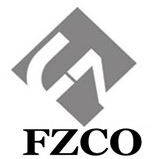Real-Time VAT Reporting Is A Good Efficiency For Tax Authorities
There is increasing real-time VAT reporting system for Tax Authorities. The global trend of taxation authorities seeking to collect information from businesses’ ERP solutions. Other internal core systems is in real-time by electronic means. Therefore, many countries are implementing new data submission and electronic auditing requirements, creating a whole new set of challenges.
Tax administration goes digital
A number of European jurisdictions, such as UK, Italy, Spain, Hungary and Poland. Some countries have already introduced digital regimes which affect VAT reporting. Increasingly countries are looking to introduce a system similar to Standard Audit File for Tax (‘SAF-T’) / real-time VAT reporting.
This end-to-end flow of information should be digital and capable of being audited going forward. Some organisations may do this currently by downloading reports and files. But where this information is being manually entered into spreadsheets or tax compliance software. The impact of automating of this process will consider.
It is likely that a digital audit trail from the submission of information to the underlying accounting records. It requires and potentially the submission of the underlying documents.
The article brief overview of some jurisdictions’ regimes.
UK
In April 2019, HMRC implemented digital tax returns for small businesses. Making Tax Digital is an initiative from HMRC that is designed to make sure that our UK tax system is effective and efficient for taxpayers in an ever changing digital world.
Businesses will require to ‘push’ the nine figures of their UK VAT return from their ERP system (or spreadsheet). It is link with HMRC systems via an application programming interface (‘API’).
Currently, Making Tax Digital for VAT (MTDfV) is mandatory for all VAT registered businesses, above the £85,000 threshold. This means that these businesses must keep records and submit their VAT returns digitally, using Making Tax Digital software that is recognised by HMRC, for example, FZCO Software.
Making Tax Digital is due to be extended to all VAT – registered businesses from April 2022 and it is also scheduled to be mandatory for Income Tax from April 2024.
There are three key digital components to MTDfV:
- Digital submission
All VAT return submissions must be done digitally.
- Digital records
Although this does not mean businesses will have to store each invoice and receipt digitally, the transaction data will need to be stored digitally. This includes an accounts payable and accounts receivable transactional listing, and a digital VAT account from which the UK VAT return is prepared.
- Digital links
VAT returns must have digital links to digital records – spreadsheets can remain, but they will need ‘digital links’ to source systems.
Spain
The Immediate Supply of Information system (SII Spain) came into effect on July 1, 2017, with retroactive effect for the first semester of 2017, obligating companies to send details of invoices issued and received electronically to the Electronic Office of the Spanish Tax Administration Agency.
The Immediate Supply of Information (SII) is electronic management tool for the Immediate Supply of Information on VAT (in Spain, SII). It can be considered an agile procedure communicating with the Electronic Headquarters of the Spanish Tax Agency for new tax filing done online.
How does it affect VAT returns, models 303, 347 and 390?
Taxpayers under the SII Spain system are not require to submit information statements 347 or 390. However, the Model 303 self-assessments must be submitted on a monthly basis, with the exception of those companies voluntarily subscribing to the SII regime. It is according to the regulations that came into force on July 1, 2018. It is maintain the quarterly basis by which they were previously governed.
Poland
The Uniform Control File (JPK) is a set of data generated by a business entity’s IT system (by direct data export). It contains information about business operations for a given period. Poland JPK has a specific layout and format (XML schema) and is only sent electronically. It was introduced in Poland on July 1, 2016, for large taxpayers. It became mandatory for all taxpayers on January 1, 2018. JPK VAT was replaced with JPK VDEK (also known as JPK_V7M and JPK_V7K) on October 1, 2020.
JPK_VAT files are electronic accounting files issued in XML format according to SAF-T. The format developed by the OECD. The Ministry may also require the submission of other electronic accounting documents in SAF-T format at the request of the tax authorities.
There are two types of JPK_VAT files. It depends on whether the company reports VAT monthly or quarterly. “JPK_V7 M” is for taxpayers who report VAT monthly and “JPK_V7 K” is for taxpayers who report VAT quarterly.
Czech Republic
An electronic invoicing regime is compulsory for cash or cheque sales for certain activities (such as retail sales). Card payments and bank transfers does not come within the regime. The process can broadly summarise as follows:
- Retail store sends details of the transaction (in XML format) to the authorities.
- The authorities send back confirmation of receipt with a unique code (FIK – fiscal identification code).
- Retail store then issues a receipt (including the FIK) to the customer.
- Registration of the sale can verified through the web application of the authorities.
United Arab Emirates
There is a prescribed format for submitting data to the tax authorities for audits.
It is known as ‘FTA Audit File (‘FAF’)’. It is broadly similar to SAF-T. The system requires businesses which are chosen for an audit to submit documentation require. It is support the figures declared in their VAT return in a prescribed format (.csv).
Ensure VAT submission is consistent and correct first time
FZCO Accountants VAT automation ensures that all stages of the VAT transaction – from determination to reporting – is conducted consistently in every single transaction. This will ensure your data is correct, ensuring ongoing high-quality data for tax authorities and audit departments.
Please contact us to further discuss how FZCO Accountants can automate your FZCO software VAT return submission.



